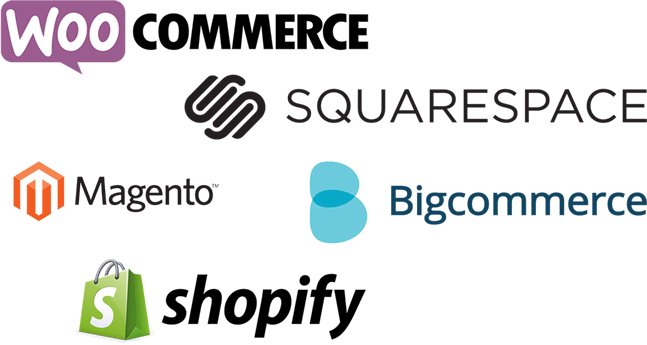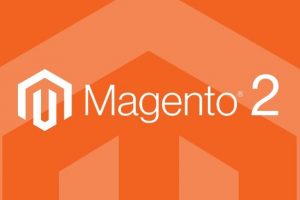From slick templates to multichannel functionality, these are some of the best e-commerce platforms out there. This top 10 list of the best e-commerce platforms is determined on their list of features, performance data, and value. This guide will help you make a comparison to find the right e-commerce platform that fits your needs.
1. Shopify
Shopify has topped this list of the best e-commerce platform. It’s popular because of its ease of use. Shopify makes it possible for bloggers and small business owners to launch an e-commerce store with little volume. You’ll realize how quick and easy it is to start your own store.
Pricing plans range from $29 to $299. Prices are dependent on the features and order volume. However, Shopify doesn’t have as many customization options as the other e-commerce platforms on this list. But it’s still ideal for small business owners who want to start their own online business.
2. BigCommerce
business owners who have a brick and mortar store but want to start their own e-commerce business. It has a wide variety of tools that help your business become successful, no matter your niche or industry. You can customize your online store to your liking without having to learn how to code.
While it’s targeted to those without tech skills, it’s also beneficial for those with CSS and HTML skills. There are hundreds of customizable templates available, but only a select few are free. Plans start at $29.95 per month and go up from there. Features include checkout codes, gift cards, professional reports, and unlimited bandwidth.
3. Magento
Magento is not for beginners. This platform caters to corporations and enterprises. If you work with a developer and have the budget, then this is the e-commerce platform for you. You can do anything you want to get the feature-rich website you need.
That being said, this e-commerce platform shouldn’t discourage you from using it. It’s still one of the best open-source platforms on the market. Magento provides you with all of the developer and programming resources you need to create your own online store. There’s even a marketplace where you have access to extensions and plugins that enhance your website and increases its functionality.
Magento extensions installation is relatively simple, even for newbies. There are free guides that will guide you along. Or, you can use Mageworx company to help you with your Magento extensions installation issues.
While Magento is available for free, it’ll cost you thousands of dollars to use the enterprise system. But it comes on the cloud, which means it runs faster than other e-commerce platforms. You’ll also have access to features such as adjust content per user, discounts, membership subscriptions, recurring payments, and unlimited products. But it’s not ideal for small businesses or those with a limited catalog.
4. 3DCart
3DCart has an impressive list of clients. It comes packed with features such as no transaction fees and unlimited storage. It also has its own point-of-sale software that supports multi-channel selling. However, 3DCart is not as impressive as BigCommerce since it’s been around since 2001.
This e-commerce platform is also not for small business owners. While it comes with an onboarding video when you sign up, it’s very difficult to figure out. Most of the templates are outdated and aren’t visually appealing. Customizing can take several hours, especially if you’re not tech-savvy.
But there’s a large online community of developers that are willing to help you out with your theme. The cheapest plan is $19 per month and allows 50,000 products. While it’s still a great e-commerce platform, it doesn’t have up-to-date features. But it still has more features than most of the platforms on this list.
5. WooCommerce
WooCommerce only works if you have a WordPress site. It’s the perfect platform to turn your blog into an online store. It comes equipped with its own payment processor and shopping cart. This open-source platform is perfect if you have a limited budget and resources.
It’s also one of the few free platforms in this guide. But it’ll cost you extra to install the shopping cart. If you’re a small business owner who wants to grow and scale your business, then you should look for a bigger platform. It also slows down with time, especially as you add more products and customers.
6. Volusion
Volusion is a smaller e-commerce platform than the others on this list. It targets those who are new to the world of e-commerce. It has various pricing tiers, which makes it one of the most affordable platforms, no matter your budget. The basic plan is $14 per month while the premium plan is $135 per month.
It includes key features such as discount codes, in-site blogging capabilities, and various theme options. It also has unlimited apps and integrations that make it the perfect standalone platform.
7. Squarespace
Squarespace is one of the easiest e-commerce platforms that you’ll ever use. Its drag-and-drop features allow you to create a beautiful website and online store within minutes. It also comes packed with the features and tools you need to start your e-commerce business. Even though Squarespace is targeted to artists and creatives, they have impressive features that make it perfect for small business owners.
Some of those features include abandoned cart recovery, multiple variants and SKUs, and unlimited product listings. There are various subscription and payment options. Prices generally start at $18 per month, which is cost-effective for small businesses.
8. Big Cartel
Big Cartel is a hip e-commerce platform that caters to bloggers and creatives. It’s the perfect platform if you want to share your art with the world. You can customize your website with one of Big Carte’s free theme. Or, you can code your own website if you have the HTML skills to prove it.
It comes with a custom domain, real-time stats, and inventory tracking. It also gives you the ability to offer discounts and promotions to certain products. What you pay depends on how many products you add to your website. You can use Big Cartel for free up to 5 products, or you can spend $29.99 per month for 300 products.
9. PretaShop
PretaShop is almost just as old as 3DCart. The great thing about this platform is that you can decide to download the software or use PretaShop Ready, which comes with an annual pricing plan. While the free option sounds tempting, the paid version includes features that make your website look visually appealing even if you don’t have HTML skills.
The free download version comes with an SSL certificate and web hosting. If you don’t have coding skills, then you’l have to pay to hire a developer to help you out. So, it’s worth investing in the premium plan. While the dashboard is easy to use, it’s still not as comprehensive as the other platforms on this list. But you’ll see an improvement in your ads, cross-selling, SEO, and social analytics.
10. Salesforce Commerce Cloud
This e-commerce platform was known by its previous name, Demandware. It’s become one of the best cloud-based platforms for B2C retailers. Similar to Magento, Salesforce is only appropriate for enterprises. But there are plenty of entry-level businesses who make great use of its CRM and marketing features.
Other key features include AI integration, globalization, order management, and personalization. It’s also one of the few e-commerce platforms that can handle large volumes of sales and traffic. But it’s not ideal if you’re new to the e-commerce world.
There’s no one e-commerce platform that’s built for everyone. Determine your business’s future growth plans, needs, and sales volume when choosing the right one.














Add Comment